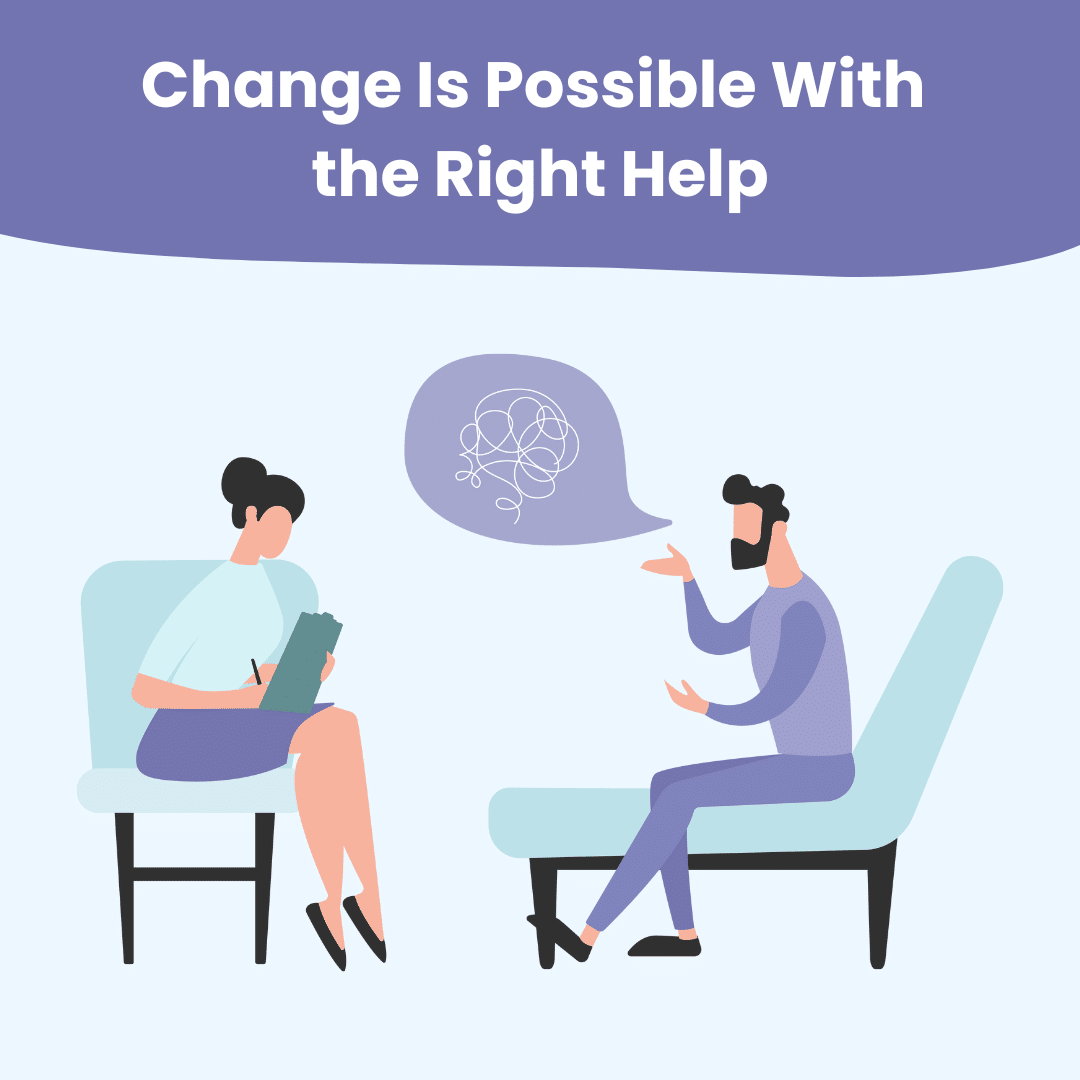
- Updated on 16 July 2024
Seeking therapy has become more common and acceptable throughout the world.
How did this change happen?
As more professionals come forward to spread awareness about mental health, more people learn what therapy means. Awareness can help people cast aside misconceptions about mental health and therapy.
Many may experience some type of distress, such as mood swings or anxiety, either once or several times throughout their life.
Hence, by learning the meaning of therapists and how they can help – people may be encouraged to explore the possibility of recovery through therapy.
Therapy can help with daily issues like low confidence, mood swings, and irritability, and disorders such as depression and social anxiety.
Keep reading to learn about what therapy means, how it works, and how to find a therapist.
Meaning of Therapists
According to the American Psychological Association, the meaning of therapist is “an individual who has been trained in and practices one or more types of therapy to treat mental or physical disorders or diseases.”
A Malaysian Therapist is an authentic, unbiased, and empathic professional who can provide objective guidance to help clients make choices that best serve their interests.
During therapy, professionals may help their clients find their strengths and courage to face difficulties so they can learn and become their authentic selves in life.
Every session conducted may make a person feel:
- Validated
- Acknowledged
- Accountable
- Safe
- Strong and confident
- Relived
If you seek help from a Therapist, you may gain a shift in perspective regarding yourself, your experiences, life, and the world.
This perspective shift can help you make the right choices that may lead you towards a happy and content life.
What Does a Therapist Do?
Malaysian Therapists at TYHO work with clients online and in person.
In the initial few sessions, say 3-4 meet-ups, your Therapist may conduct clinical interviews to get to know you better.
The interview may consist of questions to better understand your:
- Childhood history
- Medical history
- Family history
- Past and current relationships
- Personality type
- Communication styles
- Issues and symptoms
After the analysis, the therapist may also observe clinically to identify harmful patterns you may not notice.
Based on all the information you provide and the inferences they make, your therapist may help diagnose any mental health conditions and help reduce symptoms of your distress.
The expert may use either one or multiple therapeutic approaches (ie eclectic approach) to effectively resolve emotional or psychological issues.
Moreover, in general, Therapists can help you:
- Learn communication skills
- Learn tools to manage emotions
- Overcome or cope with crises such as abuse, suicidal thoughts or trauma
- Improve relationships with your friends or partner
- Cultivate self-compassion and self-care
- Learn more about yourself and accept yourself
- Reduce internal shame or stigma related to your mental health
Through short-term or long-term therapy, the therapist aims to make you self-reliant. Once you become self-reliant, you will begin to overcome problems independently even long after therapy ends.

Misconceptions About Therapists
To really understand the meaning of a therapist is to talk about what a therapist is not.
Below are some common misconceptions about therapists:
1. Therapists are like friends but with payment
Therapists do not offer advice, which is not the same as talking to friends. A professional therapist has extensive qualifications and experience to understand and improve their client’s mental health.
While a friend can give advice, a therapist identifies all the negative patterns in your speech, thoughts, and behaviours that may be contributing to an unhealthy lifestyle.
Most therapists also have around six years of education besides specialised training and certifications.
2. Therapists make decisions for you
Most therapists will not tell you what to do or which decision to make, and they will not give instructions about their opinion on a particular decision.
Therapists work with their clients objectively and teach them the necessary skills to live better lives and make better choices.
Rather than depending on a therapist to make decisions, you will become self-reliant through consistent therapy and learn to depend on yourself to solve life issues.
3. Therapists can read your mind
This is one of the most widespread misconceptions about the meaning of therapists.
Therapists are humans and cannot get inside your head or point out what exactly you are thinking.
During psychotherapy, you may share a lot about your thoughts and feelings. The information you provide may give the therapist clear insight into your thinking patterns and how they are affecting your life.

How to Find a Therapist
It is important to take your time to find the right therapist.
Therapists at TYHO are all empathetic and open-minded. We urge you to visit each Therapist’s profile and read about the information provided there.
You can learn more about the Therapist’s:
- Qualifications
- Expertise
- Background
- Therapeutic approaches
- Languages they speak
Moreover, watch their short videos to better understand who they are and the style they may use during therapy sessions.
Book a session with a Therapist after you find someone to help with your issues.
If you find the Therapist not the right match, please feel free to look for a different professional.
It may take some time to find the right Therapist, but staying positive and patient during this search can create a strong foundation for your journey towards healing!
Takeaway
Therapy is becoming more common and accepted. This change is mostly due to professionals raising awareness about mental health and helping people understand what therapy is all about.
Therapy isn’t just for serious issues like depression or social anxiety; it can also help with everyday challenges like low confidence and irritability. Many of us go through issues like mood swings or anxiety at some point, and knowing how therapists can help makes it easier to consider therapy as a solution.

Related Articles
Latest Articles
Recent Posts
- Understanding Employee Assistance Programs in Singapore (And Why Your Company Needs One)
- A Therapist’s Guide to Setting Boundaries with Parents
- Anger Management in Singapore: Top 6 Benefits
- Individual vs Group Counselling in Singapore: What’s Right for You?
- Thinking of Switching Your Therapist in Singapore? Read This First


